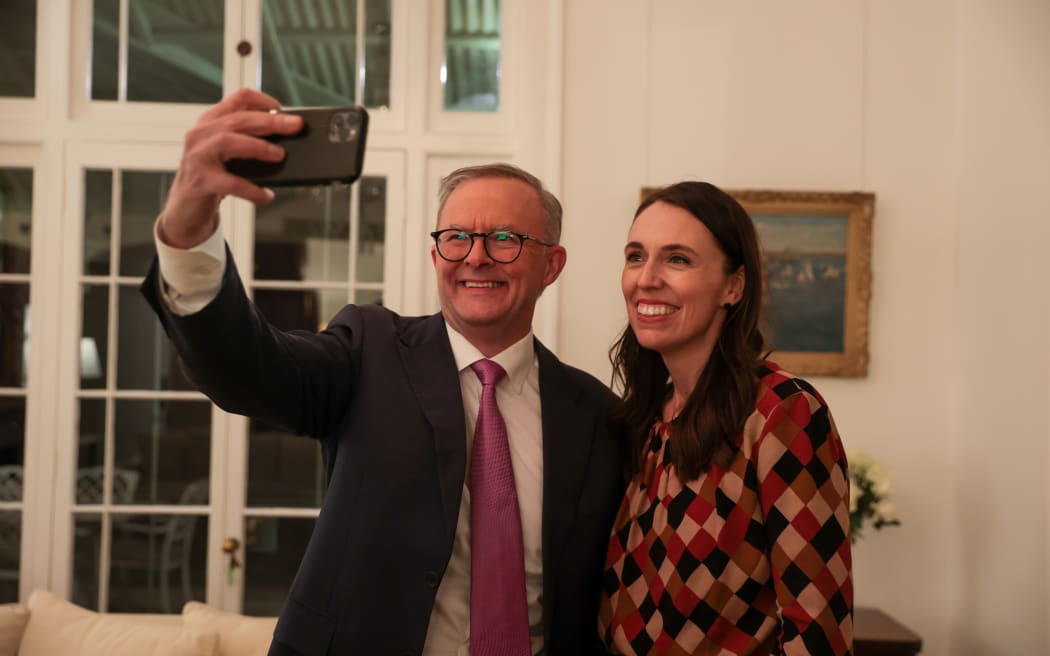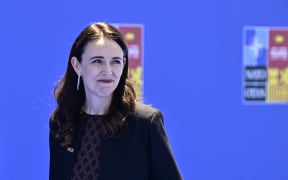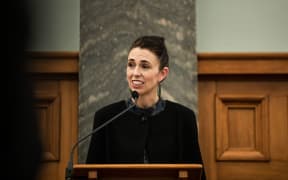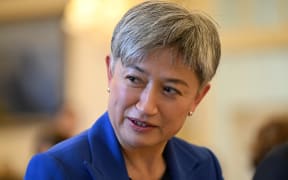Prime Minister Jacinda Ardern was in Sydney a few weeks ago to meet her friend and newly-elected Prime Minister Anthony Albanese.

The trip will end on Friday when Jacinda Ardern and Anthony Albanese hold their annual meeting. Photo: Supplied / Office of the Prime Minister
She returns today to lead a week-long trade mission in Melbourne and Sydney that will include a speech at the Australia New Zealand Leadership Forum (ANZLF) and annual bilateral talks with Albanese.
The trip will also feature a major foreign policy speech at independent think tank, the Lowy Institute and meetings with Victorian Premier Daniel Andrews and New South Wales Premier Dominic Perrottet.
The Lowy Institute is where former Foreign Minister Winston Peters announced his 'Pacific reset' in 2018; promising more aid and a back-to-basics diplomacy approach in the Pacific.
This week's Australia trade mission has a contingent of more than 30 New Zealand businesses, ranging from large exporters to small innovative companies.
Ministers Grant Robertson, Damien O'Connor, Stuart Nash, Willie Jackson, Michael Wood, Ayesha Verrall and James Shaw are also attending the ANZLF and will meet with their Australian counterparts for policy discussions.
The trip will end on Friday when Ardern and Albanese hold their annual meeting just a few days before both leaders head to Fiji for the Pacific Islands Forum.
'Significant shift' in 501 issue at last bilateral
At a media conference after talks in June, Albanese said both he and Ardern were "determined to take trans-Tasman relations to a new level."
"A new level of cooperation in the mutual interests of both of our nations. What that means is new jobs, new growth, new opportunities to cooperate."
Albanese signalled the scope of future collaborative work included climate change, economic headwinds, strategic competition in the Pacific and 501 deportees.
"We'll be maintaining Section 501 but we've heard the very clear message from the prime minister today, as I've heard before, and there could be no argument that the prime minister has been very forceful in her views and we have listened to those views," he said.
"We will work through some of those issues between now and we'll have a ministerial meeting, a leader's meeting, coming next month."
Ardern who has previously described the 501 policy as it stands as "corrosive" to the trans-Tasman relationship, said Albanese's position marked a "significant shift" in the Australian government's approach to New Zealand's concerns about 501 deportees.
"A significant shift in the language that we have had from previous Australian governments, in fact never have I seen anyone even willing to take a look before," she said.
"We have been utterly consistent, we are not expecting Australia to stop deportations in the same way that New Zealand will not stop deporting those who fall outside our laws. What we're asking for is actually, to stop deporting Australians."
Countries must look at 'common problems'
Labour shortages, supply chain disruption and climate change are expected to be among the topics of discussion on Ardern's Australian trade mission.
While the countries enjoyed a close relationship, Business New Zealand's Catherine Beard said trade and business talks about how to tackle common problems were worthwhile, such as the coronavirus pandemic, access to vaccines, inflation and climate change.
She said the countries needed to work at a similar pace to reduce greenhouse gas emissions to keep businesses competitive.
"If we're incurring a lot of costs here to try to tackle our emissions and they're not, then it starts to make Australia a more attractive place to shift some of those emission intensive businesses to," she said.
Beard said export businesses also wanted unblocked supply chains and changes to the trans-Tasman imputation system.
"We would like them to drop that tax," she said.
"If a big export market for you is in Australia and you try to bring the profits back and distribute them to shareholders, you essentially get a double tax on that, but that's not an easy one to win."





